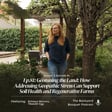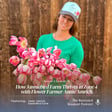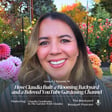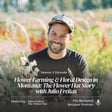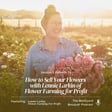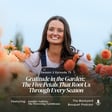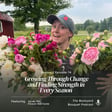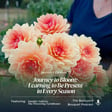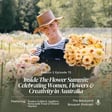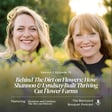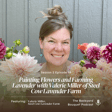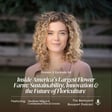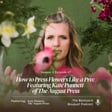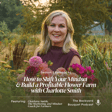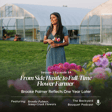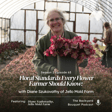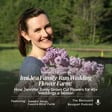
Ep.55: Cut Flower Farming with Dave Dowling: Real-World Advice for Growing and Selling Flowers
In this episode of The Backyard Bouquet Podcast, we’re joined by one of the most respected voices in the cut flower industry—Dave Dowling. With over 20 years of experience as a flower farmer and now a trusted mentor to growers across North America, Dave shares insights you won’t want to miss.
We talk about how he got started growing flowers (before Google existed!), what helped him turn a few backyard beds into a thriving year-round business, and the advice he gives most often to new flower farmers. From choosing the right flowers to grow, to selling at markets, working with florists, and applying for grants—this episode is packed with practical tips and hard-won wisdom.
Whether you're dreaming of starting a flower farm or already deep in the growing season, Dave’s insights will help you build a more sustainable and profitable business—while remembering to enjoy the flowers along the way.
In this episode, we talk about:
- How Dave got started in flower farming (and the book that sparked it)
- Tips for selling at farmers markets and to florists
- What makes a flower profitable—and what to grow more of
- The biggest mistakes new growers make
- Dave’s favorite flowers for market (and why lisianthus shines)
- How to apply for NRCS high tunnel grants
- The growing strength of the local flower movement
- Why collaboration beats competition in our industry
- What Dave hopes his legacy will be
🌼 Want to connect with Dave?
Instagram: https://www.instagram.com/davemdowling/
Facebook: https://www.facebook.com/DaveDowlingBallHort
***Rate, Review, & Follow The Backyard Bouquet***
If you enjoyed this episode, will you please consider leaving the podcast a review? Your review helps make the podcast more discoverable to others and allows me to continue creating more episodes. I'd love to know what you enjoyed most about the episode.
New episodes every week to help keep your garden blooming!
